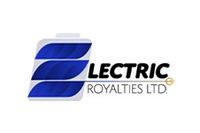Cobalt Demand Set to Surge as Automakers Call for EV Battery Production in Europe
At this year’s Frankfurt Motor Show, several automakers promised their fleets will offer electric options for every model by no later than 2025.
Elon Musk’s Tesla (NASDAQ:TSLA) is not alone in the electric car race anymore.
At this year’s Frankfurt Motor Show, BMW (ETR:BMW), Mercedes-Benz, Audi (FWB:NUS) and Jaguar Land Rover all promised that their fleets will offer electric options for every model by no later than 2025.
Additionally, BMW, Mercedes-Benz and Volkswagen (FWB:VOW) said they expect more than 25 percent of their sales to come from battery-powered vehicles by the middle of the next decade.
Their statements follow the news that France and the UK plan to ban all sales of fossil fuel cars by 2040. Their strategy could soon be followed by China, which has signaled it could ban the sale of all petrol and diesel cars in the near future.
China currently leads in the production of electric vehicle batteries, but car manufacturers are now calling for Europe to start producing the batteries in order to remain competitive.
“We need to provide a sensible transition period that doesn’t give unwanted gifts to our Chinese friends,” Reuters quotes Roberto Vavassori, president of the European Association of Automotive Suppliers, as saying. He estimates that European automakers are paying China $5,000 to $8,000 for each individual electric car battery.
“We need production in Europe for vehicles of the future, or we put all Europe at risk,” he added.
German car giant Volkswagen echoed the idea that Europe needs to start producing electric vehicle batteries. The company said at the show that it is seeking new global supplier contracts to source 50 billion euros ($60 billion) worth of electric car content, including batteries, which are not yet manufactured competitively in Europe.
“A company like Volkswagen must lead, not follow,” Chief Executive Matthias Mueller told reporters. Volkswagen added that depending on market developments, it could sell 3 million battery-only vehicles a year in 2025.
“For the initial phase, I still feel in good hands with the Korean suppliers, but I would appreciate if competition were to grow and a European consortium would emerge,” Volkswagen Brand Chief Executive Herbert Diess told Reuters.
Volkswagen expects to initially use lithium-ion batteries with the current chemical component, but it’s also working on solid-state battery units with up to 50 percent more battery power and energy. According to the company, it will need four times the capacity of Tesla’s Nevada-based lithium-ion battery gigafactory to supply its cars.
Benchmark Mineral Intelligence Managing Director Simon Moores said on Twitter that Volkswagen will need more than 160 kilotonnes of cobalt chemical for its EV fleet. “[That’s] much more than the entire 96kt market in 2016,” he said.
Overall, Benchmark sees surging electric vehicle sales increasing demand for lithium-ion batteries to 400 GWh by 2025. CRU Group forecasts that the need for cobalt will increase 34 percent annually until 2026, with demand for the critical metal exceeding 100 kilotonnes in 2017.
Don’t forget to follow @INN_Resource for real-time news updates!
Securities Disclosure: I, Priscila Barrera, hold no direct investment interest in any company mentioned in this article.

